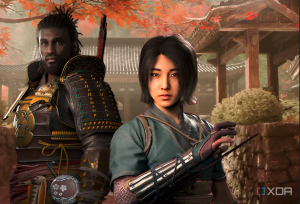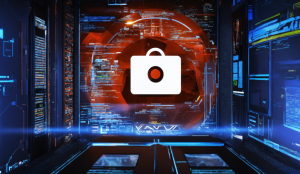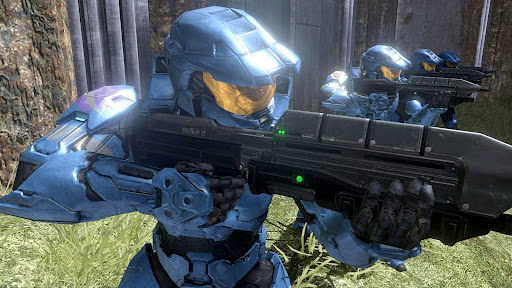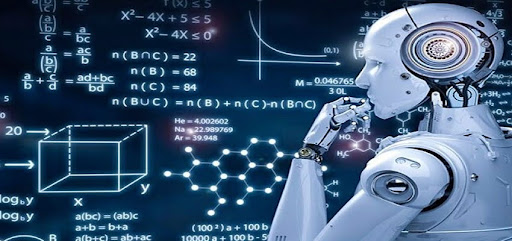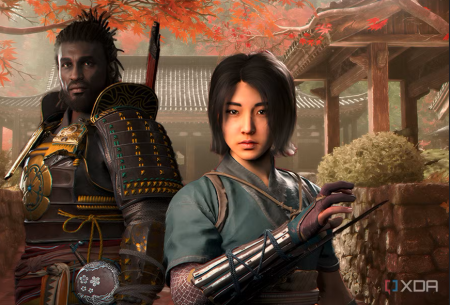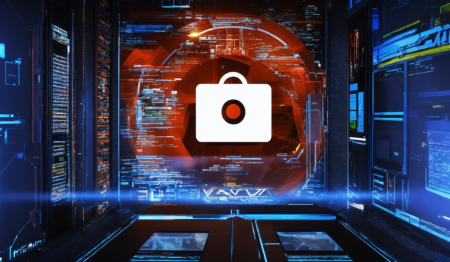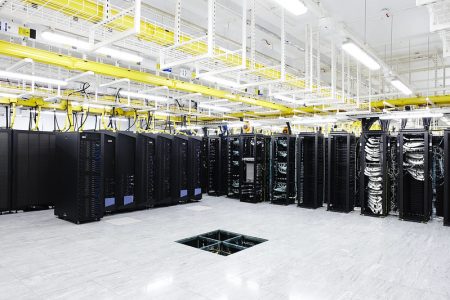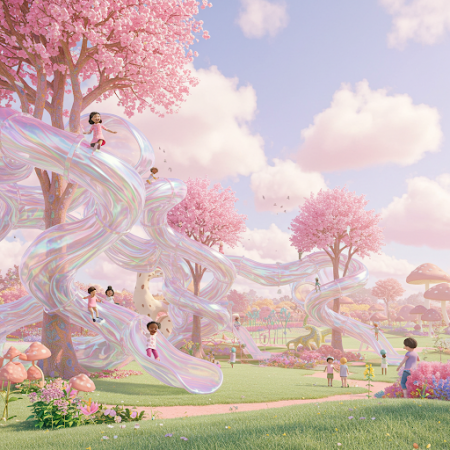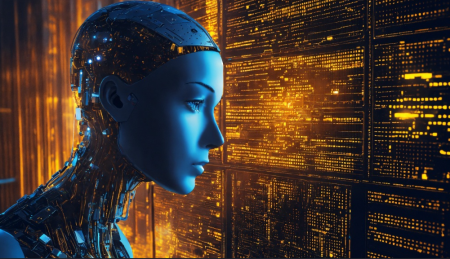Netflix’s bold decision to fire most of its game developers and replace them with AI begs the question: Can AI replace humans in the story-telling and creative aspect of video games?
While AI continues to make waves across virtually every industry it comes in contact with, Netflix has taken a bold (and somewhat unexpected) decision to fire most of its game developers and replace them with AI! Now though the streaming giant has increasingly incorporated game development in its limitless content library, it’s not like many of us log on to Netflix to play games.
In fact, according to CNBC, less than 1% of Netflix subscribers play games daily. That could be one of the reasons why they felt such “drastic” action was required, a sort of “Hail Mary” attempt to get gamers to choose Netflix as a platform? While Mike Verdu, now Vice President of GenAI for Games at Netflix, is calling it a “once in a generation transformation,” it has certainly raised eyebrows and caused people to question not only the future of gaming, but also the future of employment, in general.
Team Blue
Now about Netflix’s struggling gaming division, it was called Team Blue and the plan was to create AAA games like Halo and Call of Duty. They also hired a number of team members who had worked on hit games like the ones we just mentioned to that effect. The idea here was to build games around a number of original hit series in their vast libraries of shows in order to convert fans of the shows to fans of the games. That didn’t really work out. The games that they came up with based on hit shows like Stranger Things didn’t really capture the essence of those shows and felt a lot like cheap merchandise you buy with your favourite comic.
Like a Garfield stuffed toy or a Snoopy coffee mug, nothing to be compared with the likes of Halo, or God of War, or any of the Blizzard Games.
To be fair, the Stranger Things game has been downloaded quite a bit, but it wasn’t created by Team Blue. In fact, Team Blue didn’t release a single game till it was disbanded. That’s a big deal when you’ve hired people from top games like Overwatch and Halo. So what went wrong? It’s possible that Netflix doesn’t understand video games.
Creating a hit series is one thing but converting that into a playable experience is something else altogether. Also, it’s mostly video games that end up being good shows, and not the other way around. A few examples include Halo, The Witcher, Arcane, The Last of Us, Tomb Raider, Mortal Kombat, and the list goes on. Team Blue’s failure to deliver a single game led to both layoffs and restructuring, with the entire team eventually being dissolved late last year.
AI to the rescue?
Now using AI to develop games isn’t entirely new (though firing your entire team of developers and replacing them with AI definitely is). AI is already being used by developers for everything from enhancing gameplay, to improving player experience and even creating smarter NPCs. In a previous post about Quantum gaming we’ve talked about the problems faced by game developers trying to recreate NPCs (non playing characters) with human-like “randomness.”
So we know AI can be good for developing games. By fully integrating AI into the development process, or rather putting AI in charge of the development process, Netflix may (or may not) be on the threshold of creating something truly special.
We say this because while this is definitely new territory, most of us already know what generative AI is capable of. In a previous post we’ve covered how AI is already making music that could quite easily be mistaken for “human-generated.” We also know AI is capable of creating graphic content with 3D virtual worlds with everything from sceneries to structures, buildings, landscapes, and even realistic looking foliage.
Most importantly, however, we know it does this with no human intervention whatsoever. If you put all that into context, Netflix may be looking at a bigger picture here where AI does everything from storyline generation, to interacting with players, and creating original artwork and graphics. They’re probably also going to save a lot of money considering an AI algorithm is a lot cheaper than a team of rock star game developers.
The future of gaming
In conclusion, while a lot of people are probably shocked at the audacity of Netflix, the streaming giant has always been an Industry disruptor (remember Blockbuster?) and shaking things up has been pretty much what they do. The question here, of course, is can AI replace humans in the story-telling and creative aspect of games? And the answer is probably yes, we’ve already seen how great AI can be at content generation so why should gaming be any different?
Even if it isn’t great at coming up with original storylines, with the right training it will get there. And once it does, it could possibly use the same patterns and blueprints to create more hit storylines. Lastly, an AI powered gaming department is a lot easier to scale up (or down) than a human one.
In case you missed:
- These AI powered devices add smells to virtual worlds
- NVIDIA just dropped “ACE” at CES 2025: Truly intelligent NPCs coming soon!
- Prophetic Halo: Turning Dreams into Conscious Playgrounds
- Scientists gave a mushroom robotic legs and the results may frighten you
- Omnidirectional VR treadmills, go anywhere without going anywhere!
- China launches world’s first AI-powered underwater data centre!
- X’s Trend Genius: Social Media Psychic or Just Another Algorithm?
- From Fridge to Fusion Reactor, How Mayonnaise is Facilitating Nuclear Fusion
- The Dirty world of Cryptocurrency trading: A Beginner’s Guide
- Will Pi Coin Be the Next Bitcoin? A quick Reality Check!
